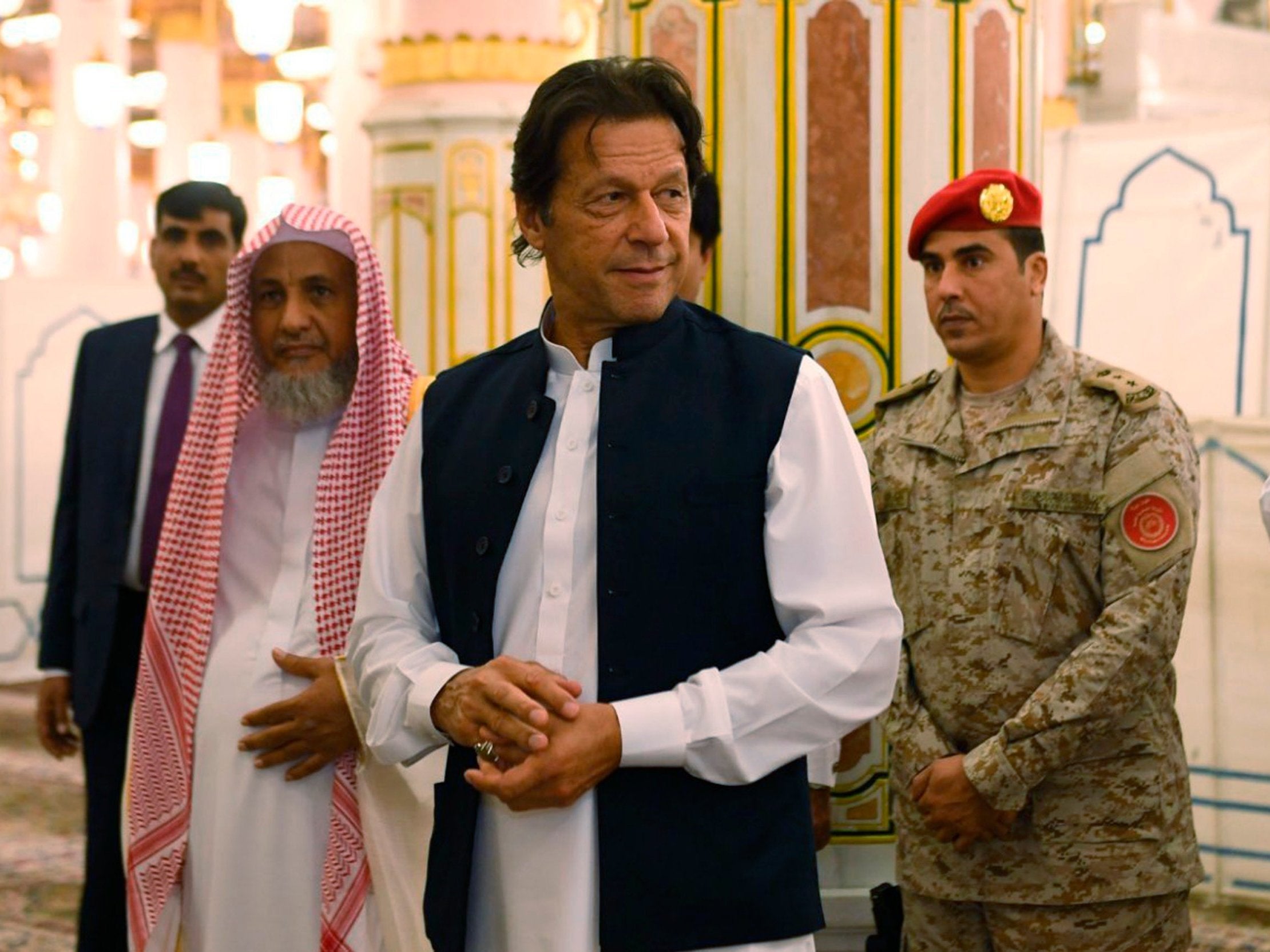Imran Khan visits Saudi Arabia in first overseas trip as Pakistan prime minister 'to seek financial aid'
Khan's choice of the kingdom for his first official visit, as well as comments from his finance minister, have led to speculation that Pakistan will seek a large loan from its Saudi allies to avoid another IMF bailout

Your support helps us to tell the story
From reproductive rights to climate change to Big Tech, The Independent is on the ground when the story is developing. Whether it's investigating the financials of Elon Musk's pro-Trump PAC or producing our latest documentary, 'The A Word', which shines a light on the American women fighting for reproductive rights, we know how important it is to parse out the facts from the messaging.
At such a critical moment in US history, we need reporters on the ground. Your donation allows us to keep sending journalists to speak to both sides of the story.
The Independent is trusted by Americans across the entire political spectrum. And unlike many other quality news outlets, we choose not to lock Americans out of our reporting and analysis with paywalls. We believe quality journalism should be available to everyone, paid for by those who can afford it.
Your support makes all the difference.Pakistan’s new prime minister Imran Khan is meeting for talks with the king of Saudi Arabia, amid speculation he will use his first official visit to request financial aid.
Comments from the former cricketer’s finance minister suggested Pakistan would turn to its major allies like China and Saudi Arabia, rather than rely on another bailout from the International Monetary Fund.
Mr Khan arrived in the kingdom and prayed at the Prophet’s Mosque in Medina, where the doors to the Prophet Muhammad’s final resting place were opened in a sign of respect for the visiting dignitaries.
He then flew to Jeddah, Saudi Arabia’s port city on the Red Sea, and will later dine with the Crown Prince Mohammad bin Salman at a state dinner, before travelling to Abu Dhabi.
Mr Khan bemoaned Pakistan’s financial situation in his first formal address as prime minister in August, saying that “never in Pakistan’s history have we faced such difficult economic circumstances”. The country’s fiscal deficit ballooned to 6.6 per cent of gross domestic product in the financial year to 30 June.
He announced a series of austerity measures and raised taxes for middle and higher earners, but warned he would “have to take more debt to repay our obligations” to international lenders.
Last month, Pakistan's finance minister Asad Umar said an IMF rescue was a fallback option and that the government was exploring other avenues for assistance. Mr Umar is accompanying Mr Khan on the Saudi visit.
Dawn, Pakistan’s largest newspaper, observed that “prime minister Khan’s decision to choose Saudi Arabia as the destination of his first official visit abroad has given rise to speculations” about a request for aid.
It would certainly not be unprecedented. Saudi Arabia loaned Pakistan $1.5bn (£1.14bn) in 2014, just six months after Islamabad’s last bailout from the IMF. The money was used to strengthen Pakistan’s rupee currency.
In official statements, Pakistan’s foreign office said only that Mr Khan would discuss “issues of bilateral interest” with King Salman and Crown Prince Mohammed bin Salman.
Both Saudi Arabia and the UAE are major providers of jobs for Pakistanis abroad – remittance payments being a key source of foreign currency for the Pakistani treasury.
Saudi Arabia in particular maintains close security ties to Pakistan, while its Muslim holy sites draw many Pakistani pilgrims each year.
Additional reporting by agencies
Join our commenting forum
Join thought-provoking conversations, follow other Independent readers and see their replies
Comments